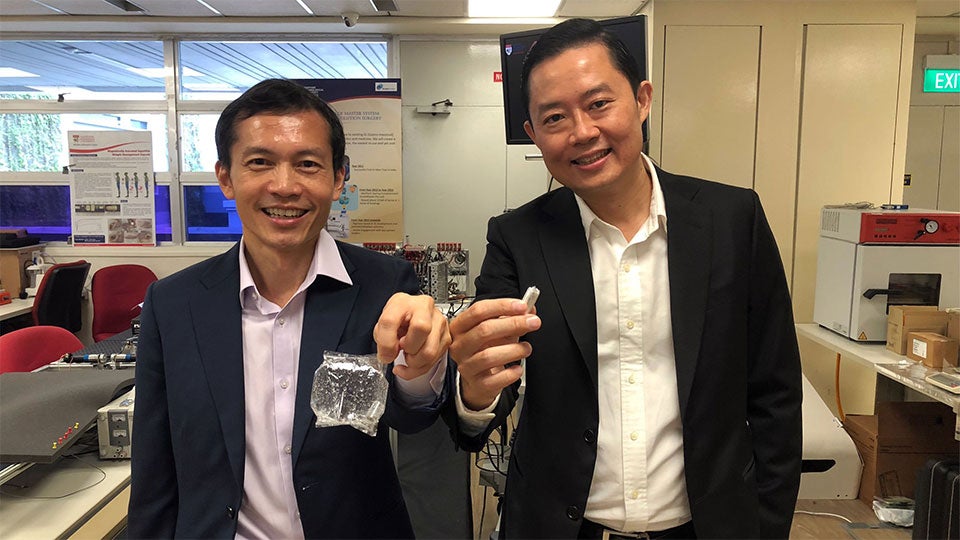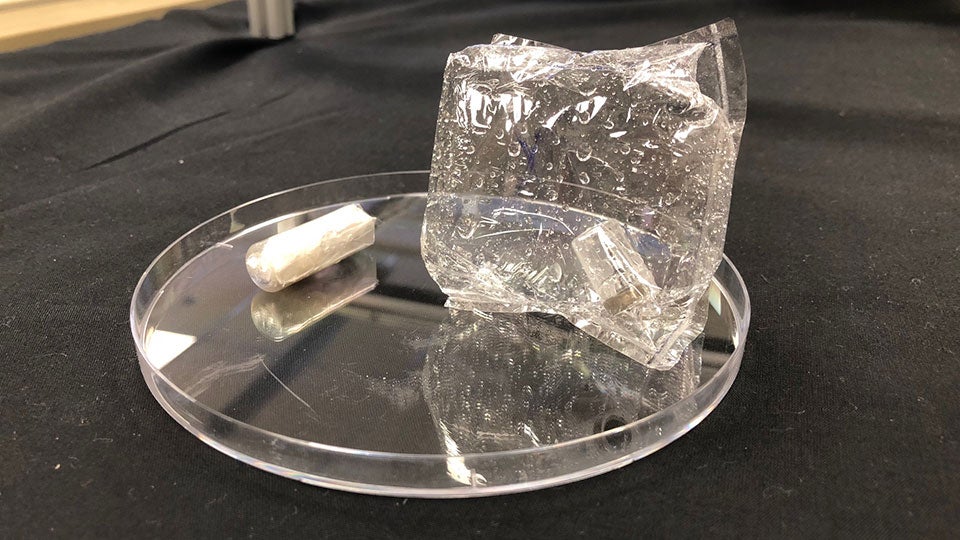Scientists develop self-inflating capsule to help tackle obesity
Published: 07 May 2019

A team of NUHS and NTU researchers have developed a new oral capsule to help obese patients with weight management and treatment.
The prototype capsule called EndoPil is taken orally and inflated with a handheld magnet to give a sense of fullness, thus less food is consumed. The team is led by Professor Lawrence Ho, Department of Medicine at NUS Medicine and Director of the NUHS Centre for Innovation in Healthcare, and Professor Louis Phee, Dean of NTU College of Engineering. This tablet, administered by doctors in outpatient settings, may be able to help obese patients address their weighty issues. The pill measures about 3cm by 1cm, and has an outer gelatine casing that contains a deflated balloon, an inflation valve with a magnet attached, and a harmless acid and a salt stored in separate compartments in an inner capsule.
Designed to be swallowed with a glass of water, the capsule which contains an harmless acid enables its outer gelatine casing to break upon entering the stomach. The location of the capsule is then tracked based on its magnetic sensor using an external magnet outside the body, which can also open the inflation valve in the pill. This mechanism avoids premature and delayed inflation of the capsule in other areas of the body. The acid and salt would then mix and react by producing carbon dioxide to fill up the capsule balloon. The balloon would then float to the top of the stomach which is more sensitive to fullness. The balloon can be inflated to 120ml after three minutes, and be deflated magnetically to a small size that allows it to enter the small intestines.

The team has filed a patent for this new innovation, and hopes to improve the prototype by ensuring it can be naturally decompressed and expelled by the body before moving to clinical trials. Prof Phee and Prof Ho plans to spin off the technology into a start-up company called EndoPil. The two professors previously co-founded EndoMaster, one of Singapore’s most prominent deep tech start-ups in the field of medical robotics.
Read the press release here.
News Coverage


